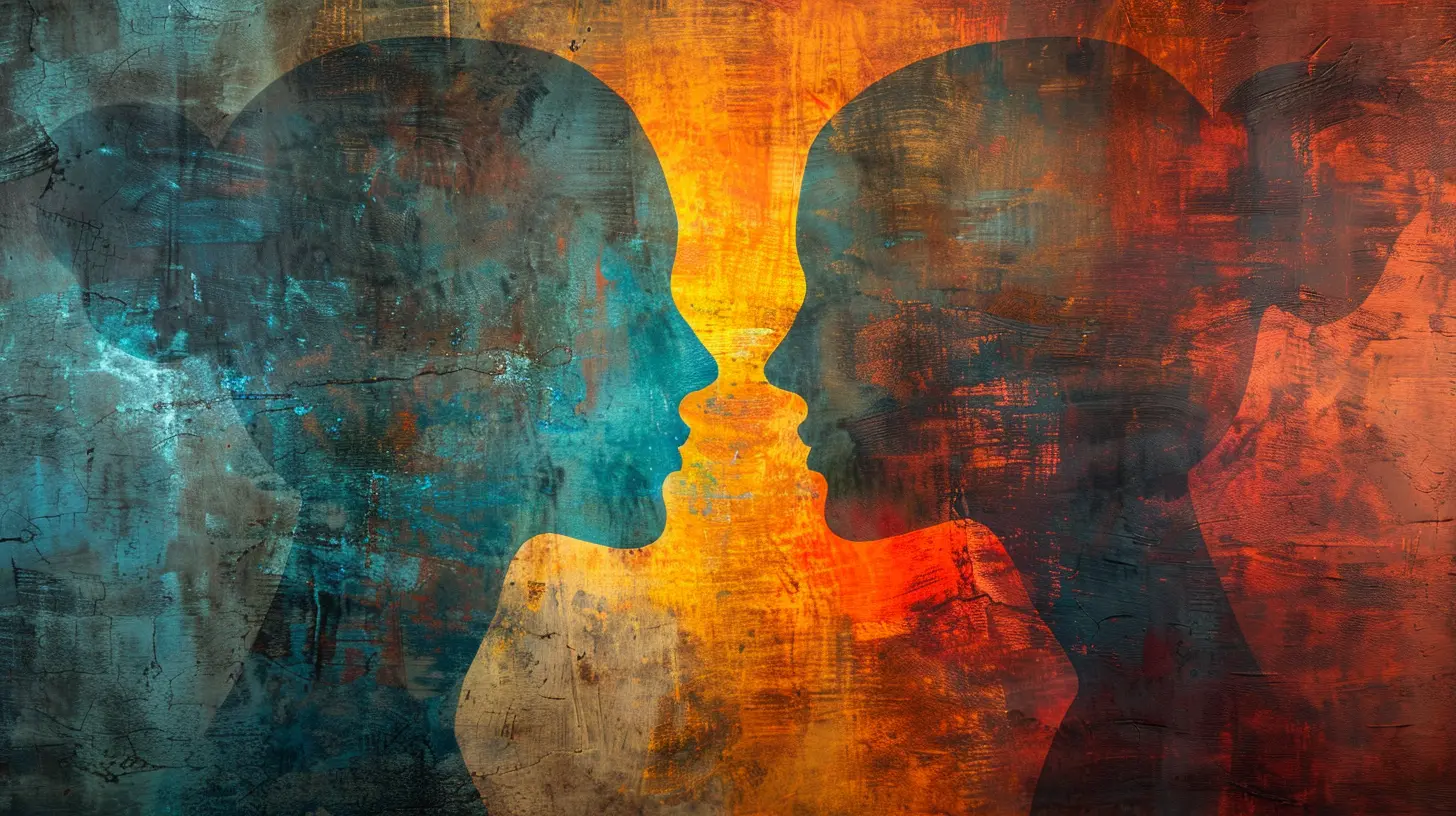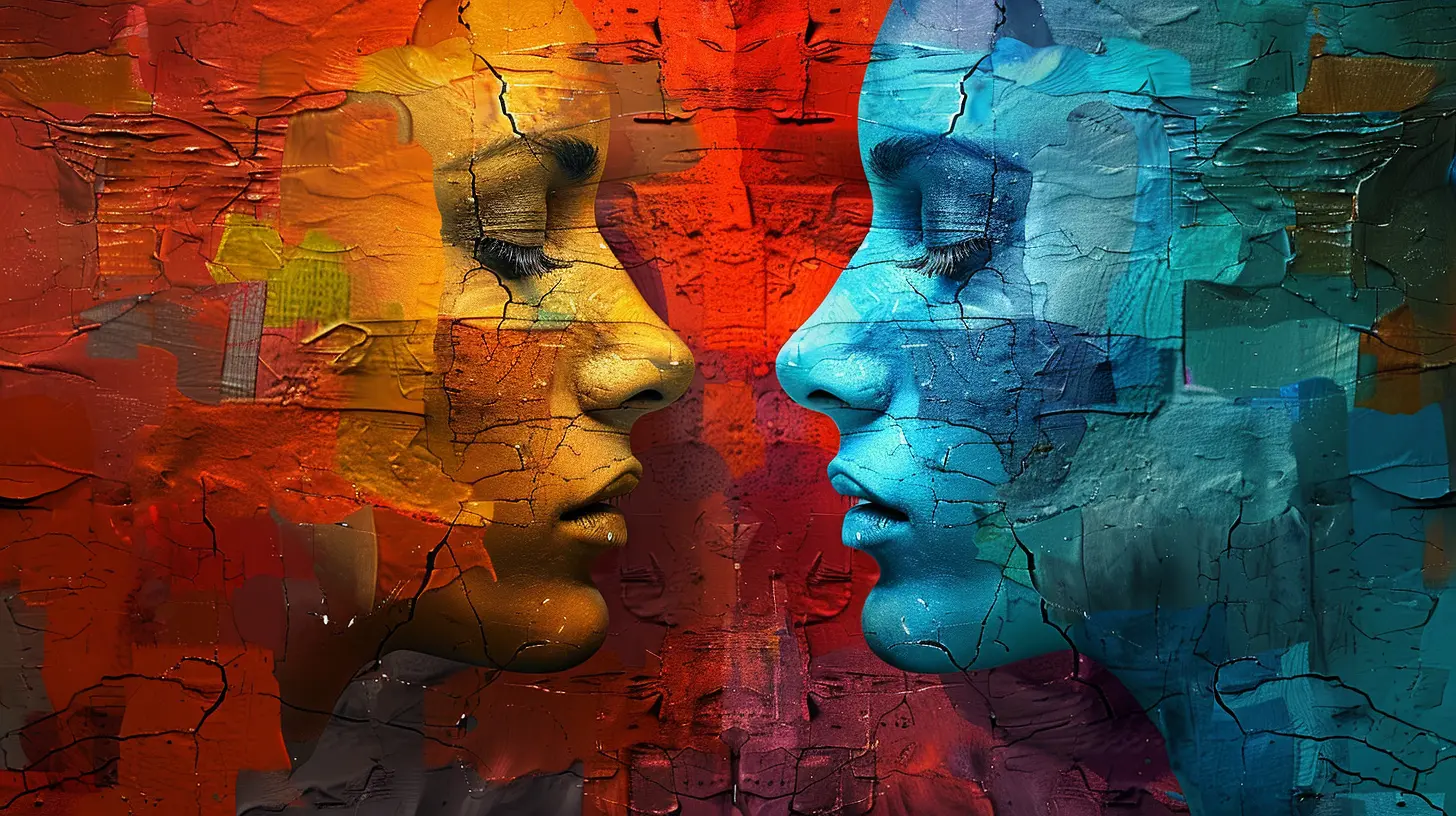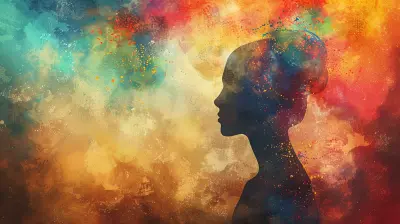Exploring the Psychology of Identity and Self-Concept
18 August 2025
Ever looked in the mirror and asked, “Who am I, really?” Don’t worry—you’re not alone. That’s a question we’ve all pondered at some point. It taps into something deeper than just labels or roles you play. We’re talking about identity and self-concept—two major players in how we see ourselves and how we fit into the world.
In this article, we’re diving into the fascinating world of identity and self-concept. We’ll break down how our sense of self forms, why it matters, and how it influences everything from our confidence to our choices in life. And don’t worry, we’ll keep the psychobabble to a minimum and keep it real.
What Is Identity?
Okay, let’s start at square one.Identity is essentially your answer to the question, “Who am I?” That could include your name, values, beliefs, profession, culture, gender, religion, and much more. It’s a mix of things we’re born into and things we choose.
Think of identity like a mosaic. Each tile represents a part of who you are—your ethnicity, your hobbies, your social circles, even your favorite pizza topping (yes, food preferences say a lot!).
But here’s the twist: identity isn’t fixed. It evolves. You might feel like a totally different person at 30 compared to who you were at 18, and that’s completely normal. Life changes us. Experiences shape us. And sometimes, we shape ourselves deliberately.
Self-Concept: The Inner Narrative
Now let’s unpack self-concept. It’s closely related to identity, but with a twist.Self-concept is your internal sense of who you are. It’s the story you tell yourself about yourself.
It covers:
- How you see your personality (am I outgoing or introverted?)
- How you rate your abilities (am I good at math or terrible at it?)
- How you feel about your worth (am I lovable? capable? worthy?)
Picture self-concept as the filter you use to interpret your world and your place in it. If you believe you’re smart, you’ll probably act more confident in school or work. If you think you’re socially awkward, you might avoid parties. That filter colors everything.
The Building Blocks of Self-Concept
Self-concept doesn’t just appear out of thin air. It builds gradually through experiences, feedback, and emotional highs and lows.Some key ingredients?
1. Personal Experiences
Everything from learning to ride a bike to surviving a breakup feeds your self-view. Success boosts confidence. Failure? It can shake your identity—unless you use it to grow.2. Social Interactions
Ever notice how people’s opinions can either skyrocket your self-esteem or crush it? Friends, family, teachers, and even social media followers all play a role in molding how you see yourself.3. Cultural Influences
Culture sets the backdrop for what’s considered "normal," "acceptable," or "desirable." It nudges your identity by shaping your values and expectations.4. Reflection and Self-Talk
People don’t give this enough credit. How you talk to yourself matters big time. That inner voice can be your biggest cheerleader—or your harshest critic.
Identity vs. Self-Concept: What’s the Difference?
Still a bit fuzzy on how identity and self-concept differ? Let’s simplify it.- Identity = Who you are to the world.
- Self-concept = Who you believe you are inside your own head.
Imagine identity as the clothes you wear, and self-concept as how comfy (or uncomfortable) you feel in them.
They influence each other but aren’t quite the same. You might identify as a student, but if you think you're failing all the time, your self-concept is going to be pretty low, even if others see you as smart.
The Role of Self-Esteem
Ah, we can’t talk about identity without mentioning self-esteem. That’s the emotional flavor of your self-concept.It answers: “How much do I like myself?”
If self-concept is what you believe about yourself, self-esteem is how you feel about those beliefs.
Low self-esteem? You might shy away from challenges, relationships, or pursuing your dream job. High self-esteem? You’re more likely to take risks, speak up, and bounce back from setbacks.
But let’s not confuse self-esteem with arrogance. Healthy self-esteem is knowing your worth without putting others down.
Identity Development: The Evolving Self
No one is born with a fully-formed identity. It’s something that develops over time and through different stages of life.Childhood
In early years, identity is often shaped by family, culture, and immediate surroundings. Kids start by identifying with their caregivers and gradually learn to see themselves as separate individuals.Adolescence
This is identity bootcamp. Teen years are all about asking “Who am I?” Teens experiment with styles, beliefs, and friend groups. They’re figuring things out, one awkward phase at a time.Adulthood
Now things get layered. Your job, relationships, and even where you live affect your identity. Adulthood often brings a more stable sense of self, but it’s still flexible. Big life events—marriage, divorce, moving, career changes—can shake things up.Later Life
As people age, they often reflect more on their life story. Identity can shift from “what I do” to “what I’ve contributed” or “what legacy I leave behind.”The Psychology Behind Identity Crisis
Ever heard the term identity crisis? It’s not just a dramatic movie plot. It’s a real psychological state coined by Erik Erikson, a developmental psychologist.An identity crisis happens when you don’t know who you are or where you’re going. Common triggers?
- Major life transitions (graduation, retirement)
- Trauma or loss
- Cultural displacement (immigration, adoption)
- Gender or sexual identity exploration
It can feel like your inner GPS is malfunctioning. But it’s not all bad. Sometimes hitting that low point is what pushes you to rebuild with more honesty and intention.
Social Identity and Group Belonging
Let’s shift gears a bit—because identity isn’t just about you. It’s also about how you fit into groups.Social identity is the part of your identity that comes from the groups you belong to—like being a sports fan, a feminist, or part of a specific religion.
We all crave belonging. Being part of a group helps us feel safe and valued. But it can also bring bias. Ever seen someone fiercely defend their "team" even when they’re clearly wrong? That’s social identity bias at work.
Balancing individuality with group loyalty is a lifelong juggling act.
Online Identity: The Digital Mirror
Here’s a modern twist: the online self.On social media, we curate, filter, and tweak our identities. We can be whoever we want to be—or at least, whoever we want others to think we are.
But that can create a gap between our real and digital selves. If your Instagram feed is full of smiles while you’re secretly struggling, your self-concept can suffer. Digital life has made identity more complex than ever.
So the question becomes: are we presenting our true selves, or just what we think looks good in a selfie?
How to Strengthen Your Self-Concept
Here’s the good stuff—how to build a healthier, clearer sense of who you are.1. Reflect Regularly
Journaling, meditation, or even casual daydreaming can help you check in with yourself. Ask: How am I changing? What still feels true?2. Embrace Growth
Don’t box yourself in. You’re allowed to evolve. The straight-A student can become a creative artist. The shy teen can grow into a confident speaker.3. Watch Your Self-Talk
Challenge negative thoughts. Would you talk to a friend this way? If not, don’t say it to yourself.4. Set Boundaries
Knowing your values means you’ll know when to say yes and when to say, “Nope, that’s not for me.”5. Get Support
Therapy, coaches, or just deep talks with trusted friends can help you explore parts of yourself you might not even know are there.Why Understanding Identity Matters
When you understand your identity and self-concept, you’re not just going through the motions. You’re making conscious choices. You’re standing in your truth rather than trying to fit into someone else’s mold.And let’s be real—life’s easier when you know who you are. You're less shaken by criticism, better at relationships, and more confident in chasing your goals.
Final Thoughts
So, who are you?It’s a big question. And the answer will probably keep changing—that’s part of the journey. But by tuning into your identity and nurturing a positive self-concept, you’re not just surviving life. You’re living it with intention.
And honestly, that’s the kind of self-awareness the world could use a lot more of.
all images in this post were generated using AI tools
Category:
PsychologyAuthor:

Gloria McVicar
Discussion
rate this article
1 comments
Kestrel McGinn
Embracing the complexities of our identity is a powerful journey toward self-discovery. Understanding how our self-concept shapes our experiences can lead to profound personal growth. Remember, every exploration of who we are opens doors to new possibilities. Celebrate your uniqueness and let your true self shine!
September 13, 2025 at 2:32 AM

Gloria McVicar
Thank you for your insightful comment! Embracing our unique identities is indeed a transformative journey that fosters personal growth and opens up new possibilities.


